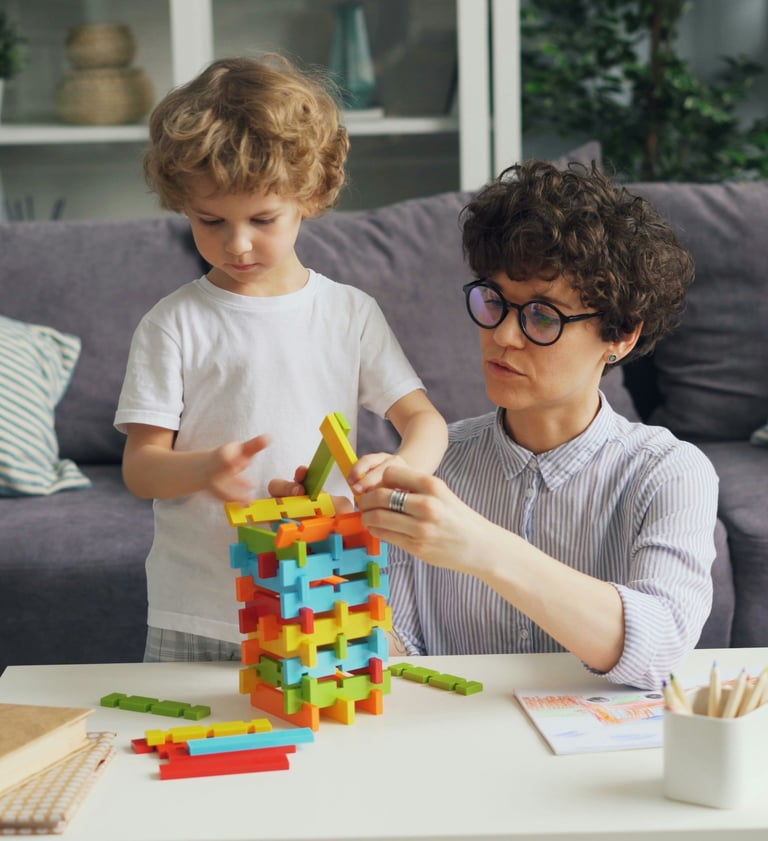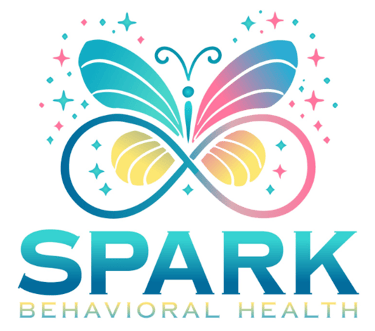
How to Choose the Right ABA Provider for Your Child’s Needs
ABA therapy providers offer personalized care. Learn how to choose the right ABA provider that fits your child’s needs and goals.
KIDS THERAPY
Timnit Yikealo
ABA therapy providers offer personalized care. Learn how to choose the right ABA provider that fits your child’s needs and goals.


One of the most important things you'll do is pick the right ABA therapy provider for your child. Your choice of service can have a long-lasting effect on your child's growth and success in life. It can be hard to know where to begin when there are so many choices.
But if you get the right help, you can be sure of your choice. You can find a provider who really meets your child's specific needs by reading this post. It goes over the most important things to think about, such as credentials, experience, and training methods. Our goal is to give you all the facts you need to make an easy, stress-free choice that will ensure your child gets the best care possible.
Read and take informed decisions while choosing the right ABA therapy service for your child’s specific needs.
1. What Is ABA Therapy?
What is ABA therapy? That might be the first thing that comes to mind. Well, Applied Behavior Analysis (ABA) training has been shown to help kids learn important life skills and improve behavior. This therapy helps kids do better by breaking down big jobs into smaller, easier-to-handle steps and giving them treats when they do well. Your kids will learn everything from easy things like how to brush their teeth to more difficult social skills like how to make new friends with this organized method.
ABA comes in several different formats, here is a simple breakdown:
One-on-one ABA therapy (1:1 therapy), you and your kid need to visit the clinic
Home-based ABA therapy, in this type sessions happen in the comfort of your home
Virtual ABA therapy, this therapy is offered online for more flexibility
School-based ABA therapy, this therapy is conducted during school hours
A great ABA plan should be personalized, based on a thorough evaluation, and adjusted as your child progresses.
2. Check Credentials of ABA Providers
While all ABA providers are qualified, not all of them are the same. This is true in any field. Before you hire anyone to care for your child, make sure they are a Board Certified Behavior Analyst (BCBA). A BCBA is an important part of making and carrying out your child's therapy plan.
When choosing a provider, always look for credentials such as:
Board Certified Assistant Behavior Analyst (BCaBA)
Behavioral Health Center of Excellence (BHCOE) accreditation
Positive parent reviews and strong references
Most people don't know that: As of 2024, there are more than 60,000 BCBAs in the world (BACB data). That sounds great, right? But they are not all involved in the same way. Some do things with their hands. Some people barely show up. So, ask, "How much time will you spend with my child directly?" That answer tells you everything.
3. Make Sure the Plan Fits Your Child, Not Just a Template
Therapy plans for kids shouldn't be the same because they are all different. With ABA, the first step is to get to know your child well and make a plan based on that information. The plan shouldn't stay the same; it should change as your child does.
Let's say the first goal is to get 10 different things. When your kid gets good at that, the next level could be 20 things... after which they put those words together to make sentences. That's progress that counts.
4. Parent Involvement Isn’t Optional and it Shouldn't be
Your voice should be strong. You should know what's going on, why it's going on, and what you can do to help. It's not enough for the best companies to let parents in; they encourage it. They will teach you how to help your child at home too.
Questions worth asking:
Can I observe sessions?
Will you train me and keep me in the loop?
How often do we check in together?
Research backs this up: with parents' help, kids don't just learn at the clinic; they use what they've learned everywhere. That is the main goal.
5. Pick the Right Setting for Your Family
Some families prefer therapy in a clinic. Others want home based autism therapy. Some need virtual autism therapy due to distance or schedules. There’s no one right answer.
Home-based ABA pros:
Your child is in a familiar environment
You can easily participate in sessions
Real-world practice happens in your home
Home-based therapy cons:
There may be more distractions
Less opportunity for group learning
The right setting depends on what works best for your family and child, not just what’s most convenient for the provider.
6. Check How Progress Is Measured
Progress shouldn’t be a mystery. Providers should show you data charts, notes, or videos that track how your child is doing.
Signs of effective measurement include:
Monthly progress reports
Charts that show trends in behavior and skill development
Plans that adjust when something isn’t working
Always ask, “What happens if my child doesn’t meet a goal? Will the plan change or stay the same?”
7. Ask When Services Might End
ABA therapy for autism that is very well controlled often lasts through childhood and into adulthood. But it shouldn't go on for too long without a clear goal. Ask your provider how and when they decide it's time to end.
Say your child learns how to ask for ten things. What's next? Can they use this skill at school or when they go shopping? Your child should be able to easily use their skills in more than just therapy before therapy ends.
8. Understand the Costs Upfront
In the state of Oregon, the cost of ABA therapy is covered by all health insurance plans. However, fees apply if you don't have insurance. Without coverage, you'll need to pay out of pocket, with costs ranging from $100 to $150 per hour; which can add up quickly. Make sure you know how much everything will cost by asking:
Does my insurance cover ABA therapy?
What are the co-pays and deductibles?
Can I get all the fees in writing?
Be wary of providers who push for therapy hours that aren't needed and don't give you a good reason. It's important to be clear and open about costs.
9. Think About Add-On Supports
ABA works well with other supports. For example:
Autism movement therapy builds motor coordination
Vision therapy for autistic child can help with focus
Art therapy for autism may improve self-expression
Talk to your provider about whether they work with other people. That means they care about your child more than just their way.
10. Cultural Fit Matters
Your provider should accept your history, the way you speak, and the way you raise your children. Find out how they teach their staff to be culturally aware.
If they care about family, do they change their plans?
Are their teachers aware of and respectful of your beliefs?
If the answer is no or vague, keep looking.
Final Thoughts
It's not about having the coolest website or the biggest resume when looking for the right ABA provider. To find people who will listen, talk, and treat your child as a whole person. A good ABA therapy provider will work with you, adapt to your needs, and use facts, not guesses.
Whether you choose virtual ABA therapy, home, or in a clinic, the right team will always put your child's long-term success and your peace of mind first.
